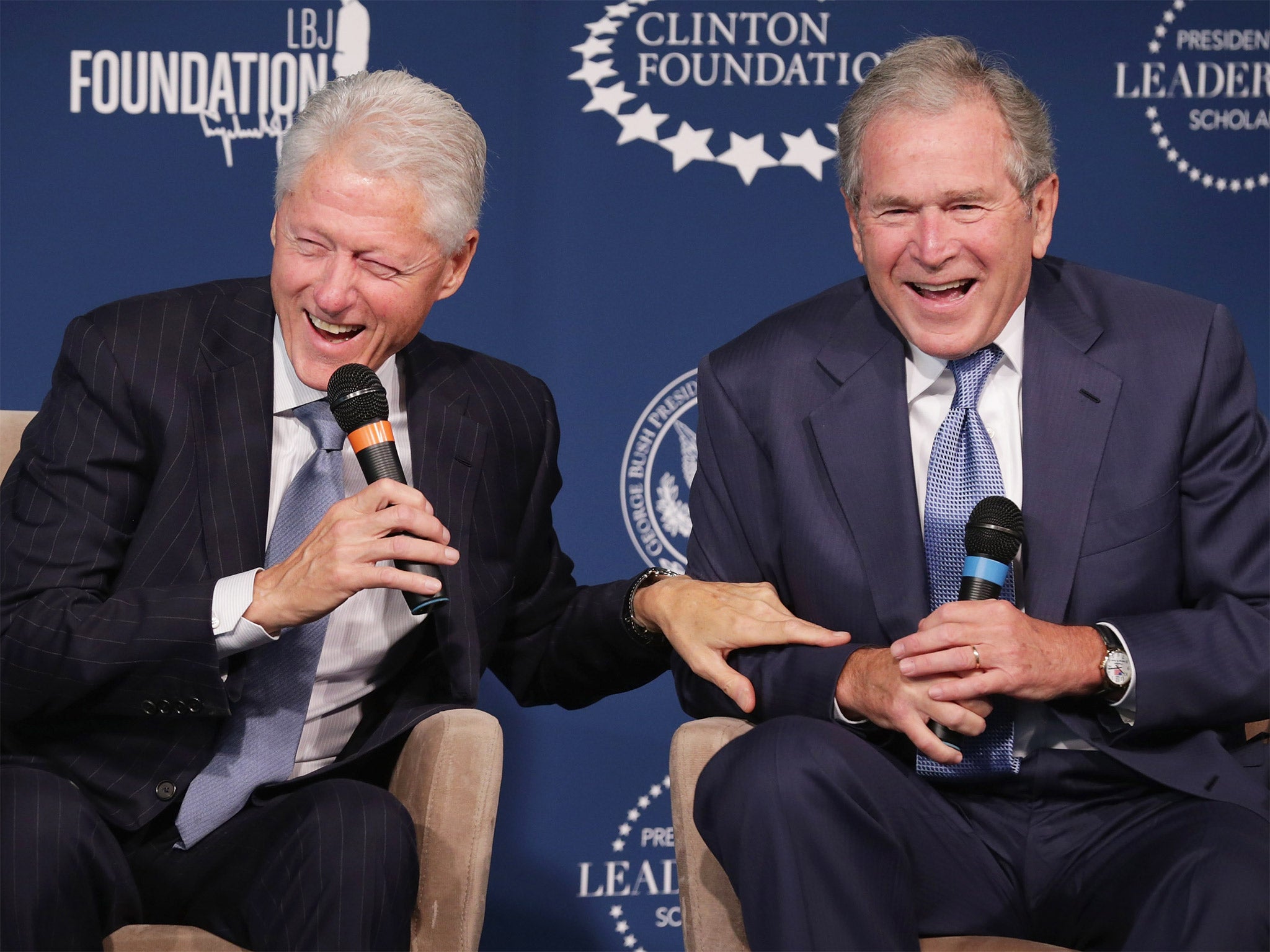
Bill Clinton Defends George W. Bush’s Silence in 2024 Election Debate
In an unexpected twist, former President Bill Clinton recently defended George W. Bush’s decision to remain publicly neutral in the 2024 U.S. presidential election. Clinton expressed support for Bush’s stance, noting that the former Republican president has, in fact, shared his views on several crucial issues, especially immigration. According to Clinton, Bush may not openly endorse a candidate, but he has made his opinions known on topics close to his heart, such as the importance of a robust immigration policy. This perspective, Clinton believes, indirectly signals Bush’s political leanings and hints at his unspoken preferences.
The backdrop to this discussion is a tense election season, with former President Donald Trump once again on the Republican ticket, running against Kamala Harris, the Democratic candidate. Trump has adopted hardline immigration policies, promising actions like mass deportations, and even labeled the U.S. as a "garbage can" due to what he sees as a crisis at the southern border. In contrast, Bush has been an advocate for compassionate immigration reform, a stance that has subtly set him apart from Trump’s rhetoric. Clinton highlighted that Bush has, over the years, voiced support for policies that reflect America’s identity as a land of opportunity—a view that aligns more closely with inclusive immigration reforms than restrictive ones.
Also Read:- Jeff Bezos Sells $214 Million in Amazon Stock – Here's What That Means for Investors
- "Trump’s 2024 Victory: Three Stocks to Watch Amid Shifting US Market"
Interestingly, Bush has made it clear that he will not endorse anyone in the 2024 race. This decision comes even as his former Vice President, Dick Cheney, has openly supported Harris, joining his daughter, Liz Cheney, in vocal opposition to Trump. Notably, Bush is now the only living former president who has stayed out of the endorsement spotlight this year. Both Jimmy Carter and Barack Obama have thrown their support behind Harris, and the Clintons have campaigned actively for her, particularly in critical swing states. Bush’s silence, however, should not be mistaken for indifference; it appears he is keen on maintaining a sense of political neutrality, a choice he has made consistently. In the 2016 and 2020 elections, Bush refrained from supporting Trump and reportedly did not vote for him, underscoring his desire to steer clear of divisive political endorsements.
Despite Bush’s withdrawal from politics, Clinton hinted at Bush’s quiet involvement in the political landscape, mentioning that Bush has privately expressed his approval of certain political figures, including Colin Allred, a Democratic congressman from Texas running against Republican Senator Ted Cruz. This endorsement, although low-profile, subtly indicates Bush’s leanings and his appreciation for what he sees as balanced leadership.
Clinton’s defense of Bush highlights a nuanced respect that bridges party lines. Although their political ideologies differ, Clinton sees value in Bush’s consistency and his principled silence. In an era when endorsements and vocal support are seen as measures of political loyalty, Bush’s quiet stance may reflect his desire for civility and discretion in an increasingly polarized environment.
Read More:

0 Comments